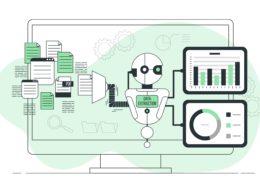Isn’t it interesting how PCs have evolved? It was just a few years ago when everyone was discussing faster processors. And now, AI PCs are a hot topic. These new machines are pretty smart. They come with special hardware called Neural Processing Units (NPUs) built right in. This means they can handle complex AI tasks super fast, locally on the device, instead of sending data to the cloud.
Sure, they boost productivity and streamline workflows. But on the flip side, they open new doors for cyber worries. Much like businesses are exploring AI, so are cybercriminals to create trickier attacks.
How do you keep business data and customer privacy safe from threat actors? Here, we’ll share a few tips.
1. Use Deception Technology
Deception technology offers an innovative way for small businesses to turn the tables on attackers. Instead of only building defensive walls, this approach involves setting up decoy systems and data within the network. These decoys, such as fake files, folders, or credentials, are designed to look like valuable assets to an intruder.
When an attacker interacts with these harmless fakes, it triggers an alert. This early warning is valuable against sophisticated AI-powered attacks, which can be stealthy. For small businesses, deception tools provide a powerful yet accessible defense layer.
Create folders that appear to contain sensitive information, like financial records, but are filled with fake documents. If someone accesses them, it’s a clear sign of an intruder. Legitimate employees would have no reason to be there.
You can also plant fake login details on your AI-powered PCs. If an attacker steals and attempts to use these credentials, it signals a breach attempt. Research shows that businesses that use deception technology can identify intruders up to 12 times more quickly. This reduces detection time to 5.5 days from over 60 days.
2. Invest in a Good Endpoint Security Solution
Endpoints are all the devices connected to a business network. While antivirus software provides a first line of defense, endpoint detection and response (EDR) solutions offer a deeper layer of security. Endpoint security solutions monitor device behavior, analyze network traffic, and detect more sophisticated and advanced attacks.
If the security of an AI PC is compromised, especially by an AI-enhanced attack, EDR can help detect the intrusion quickly. It can then initiate automated responses. This rapid response can significantly limit potential damage. However, installing EDR yourself can backfire. By default, many applications have the same data access as you do, meaning a single compromised app can expose everything.
That is why Cyber Protect LLC recommends a granular approach, which defines and limits what each app can do. This way, even if one app’s security is compromised, the rest of your system stays safe.
Work with a local cybersecurity provider, because they can help implement the right EDR solution with these granular controls. They will guide you through setup, monitor for issues, and respond fast if anything goes wrong. That keeps your business protected and your peace of mind intact.
3. Train Employees on Evolving Threats
Cybercriminals are becoming increasingly sophisticated. They are leveraging AI to make their phishing emails, deceptive text messages (smishing), and even fraudulent voice calls (vishing) incredibly convincing. These AI-generated scams can flawlessly mimic legitimate emails from trusted sources, or even clone voices to sound exactly like a supervisor or a colleague. The frequency of such attacks has risen dramatically. One report noted a 1,265% increase in these types of attacks since the launch of ChatGPT. This is why training your employees is important.
Once-a-year security training sessions are no longer sufficient. The tactics used in deepfakes and AI scams evolve rapidly, rendering old training material quickly obsolete. Run training sessions regularly. Teach team members to recognize subtle clues that might indicate a scam. These include unusual requests, urgent demands for money, or sensitive information, even if the message appears to originate from a known contact.
Encourage a culture of verification. If an employee receives a strange email from the CEO asking for an urgent wire transfer, train them to call the CEO directly to confirm the request. Investing in good training can also lead to significant cost savings. IBM research found that robust employee training can save organizations an average of $232,867 per breach incident.
AI PCs are powerful tools that can bring many benefits. They don’t have to be a source of fear, however. These strategies can help you build a formidable defense against cyberattacks, even those powered by AI.
It is not necessary to implement everything overnight. Start with one area and gradually build up security measures. Ultimately, you’ll build a stronger, safer future for any small business in this new age of artificial intelligence.












